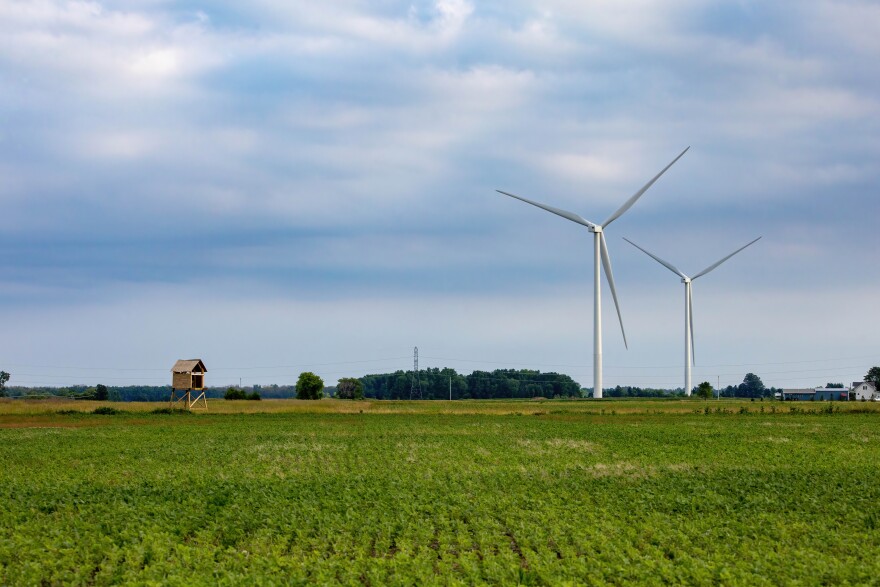Beaver Creek Township in Crawford County is proactively preparing for renewable energy systems to move into its county.
The Beaver Creek Township Planning Commission will host a public hearing at 6 p.m. Aug. 6 at the township hall to discuss proposed zoning ordinance amendments related to renewable energy.
The proposed zoning amendments define solar, wind, and battery energy storage systems and outline where each can be installed.
The changes would permit accessory solar panels in several districts and allow utility-scale wind in residential and agricultural-residential zoning districts.
The amendments also would permit battery storage in industrial areas, while updating standards and application requirements.
The ordinance outlines standards to “protect the character of the Township and the nearby lot owners and ensure the health, safety, and welfare of Township residents.”
Beaver Creek Township Supervisor Kim Van Nuck said that these new zoning ordinances would act as a safeguard for the community if a solar, wind, or battery energy storage system developer were to become interested in its land.
Van Nuck said the Northeast Michigan Council of Governments is helping the township put the ordinances “on the books” as soon as possible.
“The hurry is because they’re looking for battery storage in Crawford County and, you know, we’ve got to have something in play,” Van Nuck said.
Though Van Nuck has not heard from the Beaver Creek community on this issue yet, she said that renewable energy projects such as battery storage systems would not be beneficial to the community or the township’s gas and oil production unit.
“We don’t want them,” she said.
Carlee Knott is the energy and climate policy manager for the Michigan Environmental Council.
She said that everyone who uses electricity shares the responsibility for its production and, as Michigan transitions toward renewable energy, projects must be built somewhere.
“I think a lot of (the animosity towards renewable energy) is just not having experience with these kinds of energy sources and being a little reluctant to accept something new into your community,” Knott said. “I definitely understand that.”
Knott said that the benefits of renewable energy, such as lower long-term costs, reduced pollution, and improved health outcomes, far outweigh the downsides.
However, Beaver Creek is not alone in its efforts.
Denise Cline is the deputy director and chief planner for the Northeast Michigan Council of Governments. She said NEMCOG is assisting about 25 northern Michigan communities in updating zoning ordinances – all of which are incorporating renewable energy provisions to prepare for upcoming state mandates.
Such time-sensitive mandates include Public Act 235, which sets a statewide renewable energy target of 50% by 2030. Electric providers were required to submit updated renewable energy plans by Feb. 27, 2025, with a forecast of the resources necessary to meet these standards, according to the act.
Cline said that even communities not doing major zoning ordinance rewrites are requesting help with renewable energy standards to retain local control over project approvals.
“Every local community that I have worked with believes that local control is always better because they know their communities far better than the State of Michigan ever will,” she said. “And it should be the local communities that work with the developers to ensure the project will have the minimum impact possible.”
Some rural counties have resisted renewable energy development by banning or placing moratoriums on renewable projects, Knott said.
As a result, the state passed legislation in 2023 to ensure that if local governments refuse to accommodate these systems, developers can still proceed through a state-level process with clear guidelines and community input.
Knott said the state offers incentives to communities that host such projects, including flexible funding for local needs.
By having clear regulations in place, Cline said communities can guide development in ways that suit local needs, such as setting noise limits at property lines, protecting agricultural land, or ensuring emergency service readiness for battery storage systems.
Developers are generally willing to work with these local standards, Cline said, and having them in place allows for a proactive, locally controlled approval process.
“Being proactive provides better protection to the community than being reactive,” she said.




